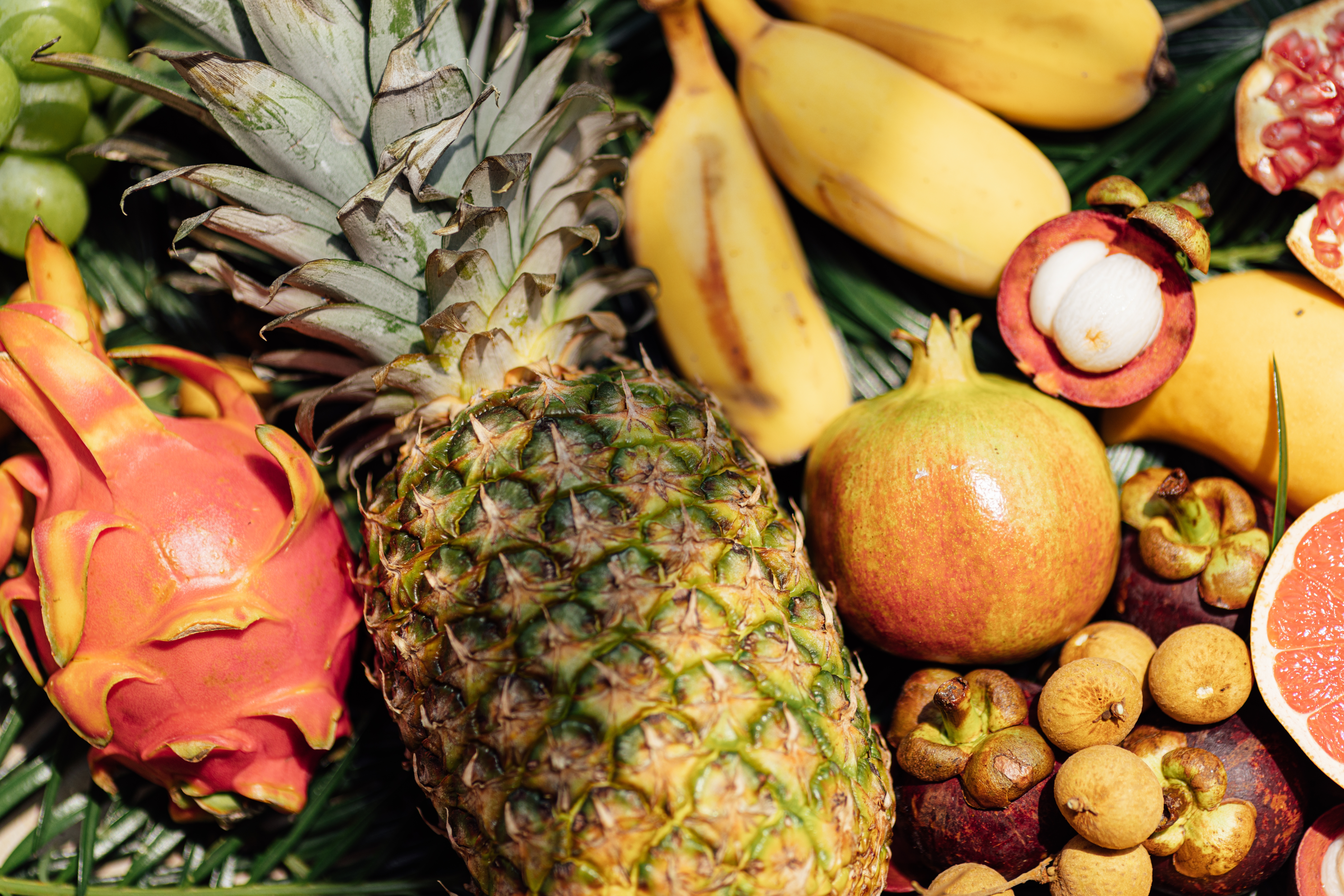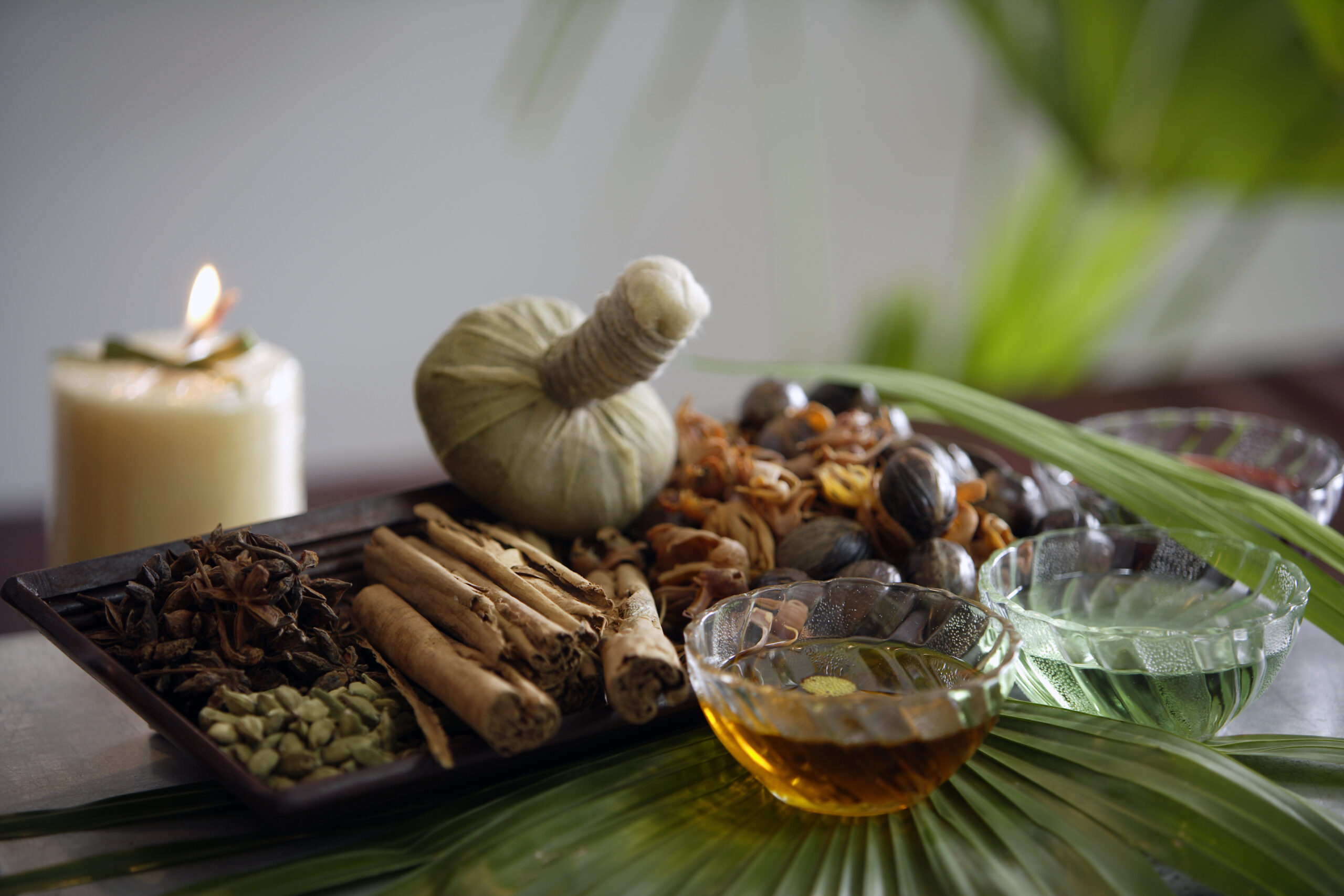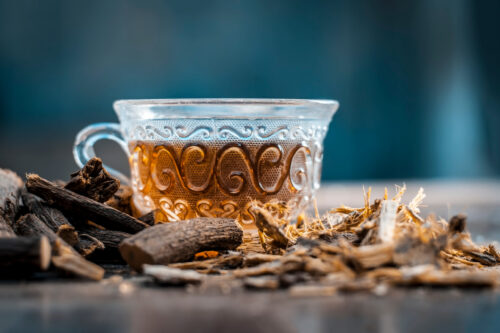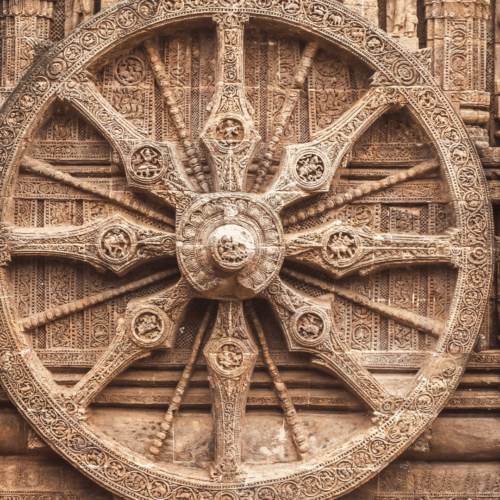Originating over 5,000 years ago in India, Ayurveda is a holistic approach to health and well-being that seeks to balance body and mind. Ayurvedic practitioners believe that the universe is made up of five elements: air, or vayu; water, or jala; space, or akash; fire, or teja; and earth, or prithvi. These elements combine to form three doshas, vital energies governing all physiological and mental functions within the body.
The Ayurvedic dietary philosophy relies on identifying your dominant dosha and eating foods that aid in restoring its balance, thereby promoting optimal mental and physical health.

Discovering your dominant dosha
According to Ayurvedic principles, individuals are made up of three doshas, pitta, vata, and kapha, with each person having a dominant dosha that shapes their physical, mental and spiritual makeup. An imbalance in the dominant dosha is believed to impact overall health and well-being significantly.
Those dominated by pitta are often characterized by tenacity, intelligence and ambition, along with natural leadership abilities. A balanced pitta results in a fast metabolism, good circulation and healthy skin and hair. However, an imbalance may manifest as a short temper, indigestion and conditions such as heart disease or high blood pressure.
Vata-dominated people are creative, energetic and kind-hearted quick learners, but out of balance, they may experience anxiety, instability, sleeping problems, irregular eating patterns, poor circulation and digestive issues.
Finally, balanced kapha-dominated people are highly empathetic, patient and wise with a healthy immune system and strong bones and joints. When their dominant dosha is knocked out of balance, however, they can suffer from a slow metabolism and weight gain, sluggishness, asthma, depression or diabetes.

The Ayurvedic diet
Once you determine your dominant dosha, incorporating the Ayurvedic diet into your lifestyle becomes a straightforward way to achieve optimal balance.
Pitta is balanced with a diet of light, energizing foods while steering clear of any heavy, spicy and sour options. This may include substituting red meat and seafood with poultry, egg whites and tofu for protein and sour fruits with sweet, fully-ripe fruits such as oranges, pineapples and mangos. It is also recommended that herbs and spices, other than black pepper, cumin, cinnamon, cilantro, dill and turmeric, should be consumed in moderation.
A vata-balancing diet, on the other hand, focuses on warm, moist and soft foods. The diet prioritizes seafood and tofu for protein; milk, yogurt and cheese for dairy; fully-ripe, sweet and heavy fruits such as bananas, mangoes and peaches; cooked vegetables; and legumes and grains such as chickpeas, lentils and cooked oats and rice. To make the most of this diet, avoid bitter, dried and cold food such as raw vegetables, cold desserts, dried fruit and herbs like parsley, thyme and coriander seeds.
Kapha-dominant people will benefit from a diet that favors spicy, acidic and filling foods. This includes incorporating fruits and vegetables, whole grains, eggs, unprocessed meats, low-fat cheeses and hot spices while minimizing the intake of heavy and fatty foods.

Benefits of an Ayurvedic diet
As well as balancing your dominant dosha, following an Ayurvedic diet can have numerous other health benefits. Most notably, the diet encourages whole, unprocessed foods that are rich in nutrients, fiber, vitamins and minerals. Avoiding processed foods is particularly advantageous as they have been linked to an increased risk of heart disease and cancers, making the Ayurvedic diet beneficial both in the short and long term.
Following an Ayurvedic diet can also contribute to mindfulness and foster a healthier relationship with food by minimizing distractions during meals, intentionally focusing on taste, texture and smell and promoting a more conscious and intentional approach to diet.
Image Credits: Ayurvedic root tea by mirzamlk © Shutterstock; mindful meditation and yoga by Teo Tarras © Shutterstock; fruits by alinabhphoto © Shutterstock; Ayurvedic massage products by Soumitra Pendse © Shutterstock.





